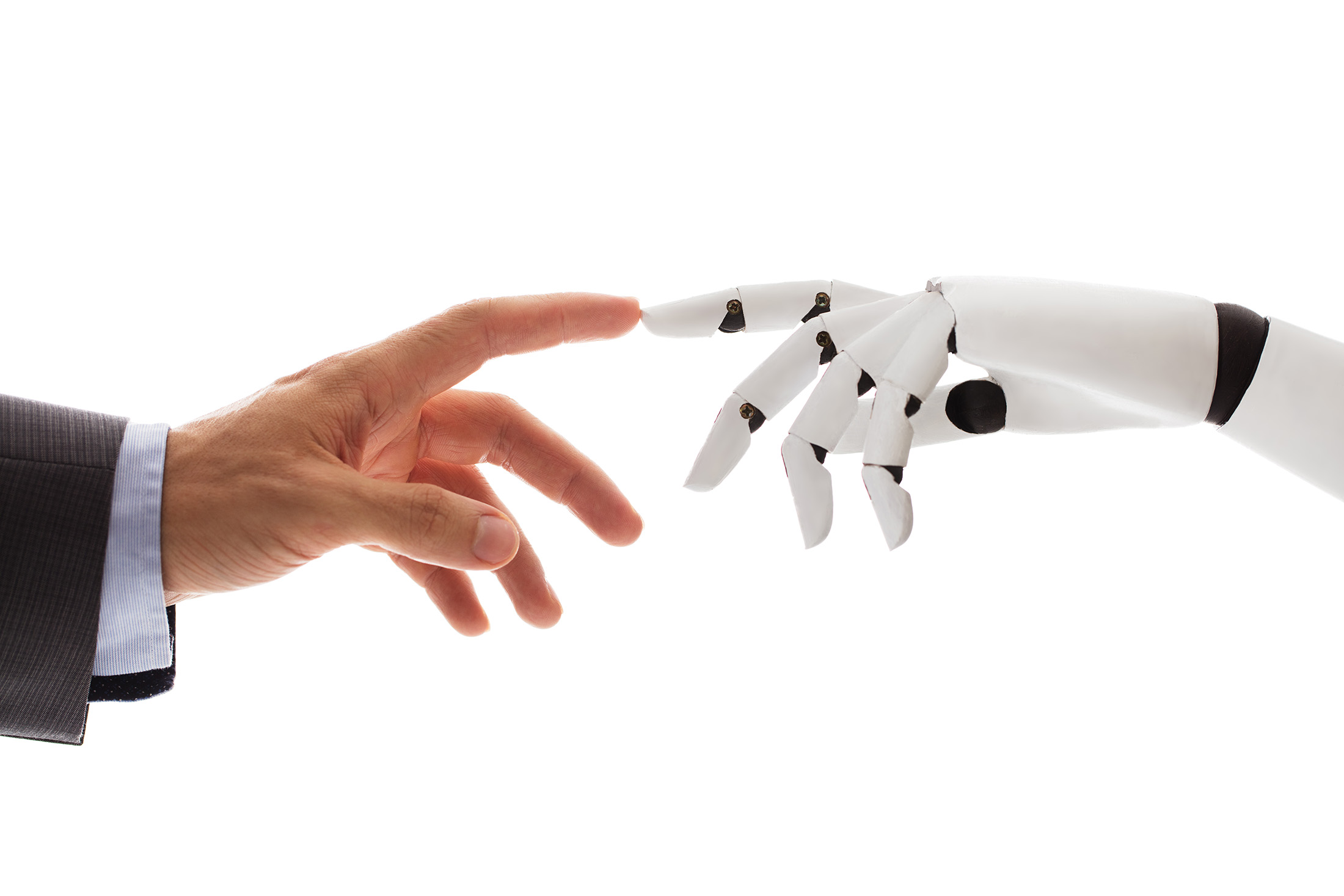Human Robot collaboration set to harness Al power

John E. Kaye
- Published
- Home, Technology

The rise of the robots conjures up dystopian images of the Human Robot and hyper-intelligent machines out-thinking humans then maliciously turning on their creators. Think Terminator meets I, Robot.
By next year, 42 million robots are expected to be sold, up from 5.5 million in 2015. Sci-fi author Isaac Asimov’s Three Laws of Robotics mandates that robots must obey humans and do no harm. But fears persist that artificially-intelligent devices pose an existential threat to humanity.
AI is, essentially, the process of designing and programming algorithms, computers and robots to evolve and adapt – based on data inputs – to solve problems, reveal insights and make predictions.
A sober analysis of AI foresees a world where we collaborate, rather than compete, with synthetically-intelligent machines to eliminate tedious, dangerous and dirty tasks, in the process liberating our own creativity.
AI-enabled systems can now read and synthesise massive amounts of data. Doctors, lawyers and other experts can draw upon these vast data sets to swiftly diagnose disease, identify relevant case law and accelerate decision-making.
Cyber-physical sensors can not only respond to, but also predict, natural disasters; eventually the Human Robot will be able enter disaster zones and rescue survivors.
According to Daniela Rus, who leads a group at Massachusetts Institute of Technology’s Computer Science and Artificial Intelligence Laboratory, it is now nearly possible to manufacture working robots that walk straight out of a 3D printer.
There are paralysing limitations to robots’ prosthetic prowess, though. Amazon’s Alexa can’t vacuum your carpet and Roomba can’t order you a takeaway. That’s because robots are restricted in the way they ‘reason’ with their environment. Collaborating with AI systems will enable us to augment and amplify many aspects of work and life, says the MIT academic.
Rus claims machines are much faster and more precise at repetitive, mundane jobs like crunching numbers, memorising, discerning patterns and lifting heavy objects. Humans, however, outwit them in creative processes and abstract thinking.
Critics often cite job displacement as an anxiety fostered by the Human Robot. Yet such fears may be overhyped. Like any innovation, AI is neither good nor bad; it’s the uses it’s put to that are open to ethical inquiry.
Imperial College London runs Tech Foresight, a futuristic laboratory that tries to help boardrooms foresee how technology, including AI, will affect their company. It ranks how close even the most far-fetched AI advances – such as implantable phones and head transplants – are from being realised.
As for the nightmare scenario where indestructible AI-enabled robotic armies crush soft humans underfoot, rest assured. Malevolent machines are ranked 99 on Tech Foresight’s list of most likely innovations. Number one, by the way, is the ‘smart nappy’ which will render the ‘sniff test’ obsolete.
RECENT ARTICLES
-
 AI-driven phishing surges 204% as firms face a malicious email every 19 seconds
AI-driven phishing surges 204% as firms face a malicious email every 19 seconds -
 Deepfake celebrity ads drive new wave of investment scams
Deepfake celebrity ads drive new wave of investment scams -
 Europe eyes Australia-style social media crackdown for children
Europe eyes Australia-style social media crackdown for children -
 Europe opens NanoIC pilot line to design the computer chips of the 2030s
Europe opens NanoIC pilot line to design the computer chips of the 2030s -
 Building the materials of tomorrow one atom at a time: fiction or reality?
Building the materials of tomorrow one atom at a time: fiction or reality? -
 Universe ‘should be thicker than this’, say scientists after biggest sky survey ever
Universe ‘should be thicker than this’, say scientists after biggest sky survey ever -
 Lasers finally unlock mystery of Charles Darwin’s specimen jars
Lasers finally unlock mystery of Charles Darwin’s specimen jars -
 Women, science and the price of integrity
Women, science and the price of integrity -
 Meet the AI-powered robot that can sort, load and run your laundry on its own
Meet the AI-powered robot that can sort, load and run your laundry on its own -
 UK organisations still falling short on GDPR compliance, benchmark report finds
UK organisations still falling short on GDPR compliance, benchmark report finds -
 A practical playbook for securing mission-critical information
A practical playbook for securing mission-critical information -
 Cracking open the black box: why AI-powered cybersecurity still needs human eyes
Cracking open the black box: why AI-powered cybersecurity still needs human eyes -
 Tech addiction: the hidden cybersecurity threat
Tech addiction: the hidden cybersecurity threat -
 Parliament invites cyber experts to give evidence on new UK cyber security bill
Parliament invites cyber experts to give evidence on new UK cyber security bill -
 ISF warns geopolitics will be the defining cybersecurity risk of 2026
ISF warns geopolitics will be the defining cybersecurity risk of 2026 -
 AI boom triggers new wave of data-centre investment across Europe
AI boom triggers new wave of data-centre investment across Europe -
 Make boards legally liable for cyber attacks, security chief warns
Make boards legally liable for cyber attacks, security chief warns -
 AI innovation linked to a shrinking share of income for European workers
AI innovation linked to a shrinking share of income for European workers -
 Europe emphasises AI governance as North America moves faster towards autonomy, Digitate research shows
Europe emphasises AI governance as North America moves faster towards autonomy, Digitate research shows -
 Surgeons just changed medicine forever using hotel internet connection
Surgeons just changed medicine forever using hotel internet connection -
 Curium’s expansion into transformative therapy offers fresh hope against cancer
Curium’s expansion into transformative therapy offers fresh hope against cancer -
 What to consider before going all in on AI-driven email security
What to consider before going all in on AI-driven email security -
 GrayMatter Robotics opens 100,000-sq-ft AI robotics innovation centre in California
GrayMatter Robotics opens 100,000-sq-ft AI robotics innovation centre in California -
 The silent deal-killer: why cyber due diligence is non-negotiable in M&As
The silent deal-killer: why cyber due diligence is non-negotiable in M&As -
 South African students develop tech concept to tackle hunger using AI and blockchain
South African students develop tech concept to tackle hunger using AI and blockchain



























